|
“All the adversity I've had in my life, all my troubles and obstacles, have strengthened me. You may not realize it when it happens, but a kick in the teeth may be the best thing in the world for you.” — Walt Disney.
It's safe to say that in your lifetime you have likely encountered adversity. Times in life that things didn't go your way. The question is, how did you deal with it? Personally speaking I take issue with some. But before we get to that I'll share a story... The year was 1996. I was playing on my high school golf team and we were ranked 5th in the State. My own analytics told me that our chances of winning the championship were pretty low, but I believed the stars could align and give us a chance. On day one of the State Championships it was a cool, overcast day. We were playing golf in late October... in Michigan (you should expect chilly weather). I had one of those days that you don't want to forget. At the end of round one I shot a 73 and led the State. Our team was in 3rd, but very far back. That evening I couldn't get my mind off of golf. I was thinking ahead and I even struggled to sleep that night. In hindsight, I needed a good distraction. The next day was rainy, cold and blustery. I absolutely was off my game and ended up finishing 6th overall. I earned All-State honors, but you can imagine my disappointment. During the round I found myself trying my best, but it just wasn't happening. At one point I remember saying to myself, people notice how you deal with the bad days more than they notice how you deal with the good days. This was a reminder to keep my emotions in check. But deep down I was disappointed and frustrated. I walked away from the course that day feeling very sad. It was my last ever high school tournament and I didn't play well. I didn't throw things. I didn't scream expletives. I didn't break anything. I was disappointed. Some time passed and I was watching sports on TV. During the game I see the player throw his glove, kick a water cooler, and slam a bat repeatedly against the wall. As I watch the commentators talk about the players competitiveness and drive. They go right to the line of applauding his demonstrative antics. Just this past weekend I was reminded of this. I watched a ballgame where everything went sideways for one team. The players were dejected and frustrated. The very next game multiple players got angry and slammed helmets, tossed bats and yelled obscenities. However, the very next day the judgment and criticism was directed towards the disappointment in game one not the anger outbursts in game two. Furthermore, I recently watched a YouTube video where Hall of Fame coach Geno Auriemma blasted poor body language, but said next to nothing about pounding a fist or chucking a water bottle. My universal question is, why are we critical of people being disappointed but we give a pass to the individual that blows his/her cork? I'm here to say, I don't think either one is good. My issue is, why do so many people quickly overlook anger and focus squarely on disappointment? In Psychology Today, the phrase is used: Anger is motivating while sadness is immobilizing. I'm not here to say whether that's true or false. I simply have an issue with society. Society gives too many passes to anger outbursts and is too critical of the person that feels disappointment. At the end of the day, it's important to understand we are all unique and different. How people deal with adversity will not look universal. One person may look you square in the eye and cuss you out. Another may simple walk away with their head down. We are all on our own journey of self-awareness and growth. Ask yourself, how do you deal with adversity? In the moment of disappointment and frustration are you a person that lashes out or is the burning fire inside you that nobody else sees?
4 Comments
"As we look ahead into the next century, leaders will be those who empower others." - Bill Gates
I have no problem saying that most leadership is average. Most leaders fall into the status quo. Nationwide many businesses are reporting that they are hiring. In fact The U.S. Chamber of Commerce reports as of Sept. 2021 that there are 10.1 million job openings. Some have said, people are getting stimulus money from the government and do not need to work. However, I have a different take. The arguments over the current workforce issues are far more complicated than who's receiving stimulus checks. Let's take a closer look at a couple different scenarios. The first one is EDUCATION. Nationwide our country has a teacher shortage. I'd take it a step further and say, we have an educator shortage. The profession is in dire need of paraprofessionals, teachers, substitutes... and the list goes on. In April of 2021 Frontline Education surveyed 1200 district leaders and discovered that ⅔’s of districts are experiencing a teacher shortage. The number one area of need is in special education. Recent reports share that 71% of districts looking to hire are searching for special education teachers. The question becomes, Why Is There A Teacher Shortage? This is a layered question, but let's take a look at some major points. First, the obvious is salary and benefits. Did you know - Teachers make about 20% less than other professionals with similar education and experience. If you are going into college why choose to enter a profession that is paid less and ridiculed more? Additionally, multiple states have had large scale strikes due to wages and benefits. Second, educators are receiving increased scrutiny and expectations, with less support. Mental Health issues are drastically on the rise, and educators are experiencing this firsthand in classrooms. The result is increased behaviors and needs of students. At the same time we are expecting more from teachers, they are also dealing with more problems than at any other time in the profession. Third, the dreaded word...burnout. We shouldn't be surprised. Many teachers feel the need to work multiple jobs due to salaries below the cost of living wage. Burning the candle at both ends, dealing with challenging families, and feeling less support than ever would likely lead anyone to feeling burned out. The final point takes us back to Status Quo leadership. A very popular saying in education is, "Kids First!" The focus of nearly all school leaders is putting students and families as the top priority. The main focus. But here is the problem... Who is most influential in a student's success? The answer is unequivocally the teacher. Here is the problem. As a profession and a society we are not taking care of our teachers. I hear from leaders across the country that the top priority is parents and students. What I have learned throughout my leadership experience is, I cannot touch every student every day. But you know who can? Teachers. I personally shifted my focus. I began to empower, connect, and lift up staff. What this began to create was improved morale and thus a positive environment throughout the school. Kids First… but why can’t it also be Teachers First? Dare To Be Different In the mid 90's Continental Airlines was easily one of the lowest performing airlines in the industry. Company shares were as low as $2. Everyone inside Continental talked of a toxic culture. And then came Gordon Bethune. From the onset he created an open door policy and eliminated 39 VP positions. The aim was to improve culture throughout the company. Most specifically he wanted an "employee first" mindset. Bethune focused on this... “Are my employees feeling good about where they are?” Managers should be asking themselves the same question. Are your employees feeling supported and fulfilled? Change must come from the inside if change is to take place and morale is to climb. This is true with all of us. Are you performing at your best when you are stressed, down and out, or feeling attacked? Chances are the answer is no. Supporting how an employee feels is in direct correlation to how happy a customer feels about their experience and whether they return..." Gordon Bethune's approach was drastically different from the majority of owners and CEO's. The school of thought has almost always been, "customers are the lifeline", they pay the bills. There is no disputing that customers help the company pay the bills. The dispute is, from a leadership lens, who is best suited to take care of the customer? The Leader or the employee? I believe employees are the first line when it comes to customers and this is the same thinking Gordon Bethune had as he made Continental Airlines into a $50 a share giant and one of the top 100 companies in the world. Gordon Bethune made Continental so attractive that they were eventually purchased by United Airlines. Leadership sets the tone. Leadership shares the vision. But leadership cannot touch every customer. That's why the employee is so critical in passing services of joy, support and kindness to all customers. Will Anything Change? What has me completely stumped is that when Covid first hit and educators were forced to adjust on the fly the overwhelming sentiment was praise for teachers. But in a what have you done for me lately, society we now see educators as part of the problem. Society points the finger at test scores, critical race theory, science, and the challenges of teaching reading. Gone are the days that the focus is on building a partnership with families. That together schools and families can help students succeed. Now it has become the blame game. Between that mentality and low wages it is no surprise to see these statistics; Americans have been quitting jobs in record numbers, and educators are no exception — 30,000 public school teachers gave notice in September alone, according to the Labor Department. Sadly, thirty-thousand educators gave notice. When will society take notice that the day is coming that class sizes will significantly increase due to a lack of teachers? Some people believe the problem can simply be fixed with money. I'm here to say, that is only one component. The educators I know and talk to are looking for systemic change.
If we want to encourage more people to go into education these things need to happen NOW. But Wait, There's More The final point is in the form of leadership. Too many leaders have helped to foster an Us versus Them environment. They go to the bargaining table every few years and they downplay the value of the teacher. Many leaders pride themselves in being Student Centered and Connecting with Parents. But again, the person that has the MOST direct impact on the student is the teacher. The time has come for educational leaders to serve. Serve their schools. Serve their teachers. Serve their communities. Being a servant-leader focuses primarily on the growth and well-being of people and the communities to which they belong. While traditional leadership generally involves the exercise of power by one at the “top of the pyramid,” servant leadership is different. The servant-leader shares power, puts the needs of others first and helps people develop and perform as highly as possible. I'm personally saddened by the current reality. There is most definitely a teacher shortage. But inside the teacher shortage is also low morale. If we do not change the systemic culture of education in our society the teacher shortage will only get worse. The time is now to take a page out of Gordon Bethune's book. We need to put our teachers first. We need to show teachers the respect and gratitude that they deserve. Our future needs educators and if we as a society don't realize that, the road ahead will surely be turbulent. Sunday night. I watch the final putt during the PGA broadcast and I glance at the clock. It says 6:20.
I look out the window and see the sun slowly dropping in the sky. I get a bite to eat and then just after seven I start the walk to Grandpa's house. Growing up is complicated. In one moment you think you have all the answers. The next moment you're a mess. The truth is, most of my life I've held my myself to a very high standard. I haven't allowed myself to take risks. I haven't allowed myself to mess up. Failure has never been an option. I've been my own toughest critic. That's the truth. As a teenager I was very focused on figuring things out. I wanted to grow, and I was also in a hurry to grow up. For the most part I was Mr. Dependable. Sometimes this made life feel easy and sometimes it didn't. For many a summer night I would make the trek to Grandpa's. I'd stop in the kitchen and say hello to Grandma. I'd grab a cookie or two from the jar and head into the living room to see if he was up for an evening round. He always was. Those evenings were easy, they were a true highlight of my youth. We talked golf. But it was more than just golf. I also listened to the stories. I listened to the subtle life lessons. And I developed a true appreciation for the story. Even today those that know me know, there is ALWAYS a story. We would get out there and talk about shots. We'd talk about visualizing. We'd talk about nothing. And amazingly, talking about nothing was exactly what felt right to this teenage boy. There was no preaching or lectures, just unconditional support...and occasionally he'd pull another ball out of his pocket when I needed to improve on the shot I just hit. I remember those dusk rounds. Most of them were just full of one liners and lots of practice. But there was one evening that I was agitated. And I remember it was about a girl. But you know what I also remember, my Grandpa didn't try to fix anything. He just did a little listening and let me be. I think as a teenager this is what I wanted. I just wanted a safe space. A space I could just forget my troubles and be. During a tricky part of life my Grandpa provided consistency, stability, and the unconditional support that I didn't fully understand until I got older. I still remember playing college golf and having our conversations swirling through my mind. It grounded me and gave me peace that is hard to explain. And now life changes. My Grandpa is headed to a better place. He's going to be reunited with Grandma. The feelings that swirl in my mind are a mixture of sadness, memories, and guilt. The brutal truth is, when my Grandpa began to experience memory loss, I faded. Selfishly I wanted to preserve my memories. I wanted to keep the best memories, instead of ALL OF IT. Life continues to teach me lessons. But one thing I've learned is a true appreciation for people in my life that don't judge. I still have tough stuff. I still deal with holding myself to such a high standard. Truth is, I struggle to do it. But today I lean on this... And it seems to me you lived your life Like a candle in the wind... Never knowing who to cling to when the rain set in... And I would've like to known you but I was just a kid... Your candle burned out long before... Your legend ever did I'm going to always tell myself the best stories when I think of my Grandpa. We all need people that provide us unconditional support. Thank you Grandpa. You will always live in my heart. "Sometimes it takes the relationships that don't last forever to teach us the lessons that will."
- Anonymous I'm a believer that experiences can be the greatest teacher of them all. Early in my career as principal I struggled with some things. One of the greatest challenges I had to figure out was, and still is at times, why people would treat me differently on Monday compared to Sunday? I was a young thirty something, new principal. I truly didn't know what I didn't know. I never intentionally tried to rule with an iron fist or give an ultimatum of my way or the highway. However for all the smiles and attempts to build relationships something just wasn't clicking. The first time I felt it was on a Monday evening well after the bell had dismissed students. As I sat in my office I was reamed on the phone by a parent. This was the same parent that I shook hands with at church. This was the same parent that was eager to reach out and share their excitement that I was the Principal at Warner. And now I'm the villain? What changed? I slumped in my chair and didn't even know who to talk to. It was getting dark outside and I just put my head in my hands. A few weeks later a similar situation arose. A friend came to me and shared some of the demeaning comments that were being shared about me in the community. If I could have seen my own face I'm sure it was one of bewilderment and confusion. I had not even been at this for 5 months and I was being backstabbed and hung out to dry. I vividly remember the hurt and pain I felt. I stopped going to church. I kept praying, but I couldn't handle sitting next to people that would be kind on Sunday and treat me like trash on Monday. On the outside I put on a brave face, but inwardly, I was breaking. But again I didn't share the struggles because a part of me was ashamed that I was failing. Thank goodness for a couple of friends that provided some reassurance and a lifeline. The first was my good friend, Jimmy Casas. He gave me some tough love and simply told me that I had to stop letting negative people take up space in my own head. His exact words were, "You're letting them live rent free in your head!" He was right. The second was Joe Sanfelippo. Joe has a unique ability of finding the humor in most situations. In this instance Joe made fun of me. At first I didn't know how to take it, but then he added, "You can't take everything so seriously. People's opinions of you aren't your business." I had never heard that, but in a humbling way he was correct. I also began to pay very close attention to what was right in front of me. After a challenging beginning of my principalship I chose to be fully transparent and to do my very best to live in the moment. Do you know what came easiest? Loving the kids. I rediscovered my why by connecting with our kids each and every day. Now as I have years of experience under my belt I take a slightly different approach to backlash and trolling. A wise woman once said, "When someone is cruel or acts like a bully, you don't stoop to their level. No, our motto is, when they go low, we go high." When you put yourself in a position of leadership you will encounter adversity, pushback, anger, sadness, and so many more challenges. But you always have a choice in how you respond. To me, true leadership is rising above our differences and finding a way to leave our world better than we found it. Life has taught me many things and here is one more thing I expect...I'm not done learning and I'm not done growing. I hope you will see adversity as an opportunity. Some of the best life lessons come from the biggest obstacles. My journey has not been easy, but it has made me the person I am today. And for that, I'm forever grateful. "If you're not making mistakes, then you're not doing anything. I'm positive that a doer makes mistakes."
- John Wooden Four years ago today Brad Gustafson and I had our first UnearthED podcast published. I've thoroughly enjoyed interviewing friends, leaders, and change makers. But towards the end of the year a conversation changed me. We had just concluded recording a show and our producer, Errol had a "coming to Jesus" moment with us. Even as it was directed to both of us, I felt him talking into me. Since that conversation I've done a lot of reflecting (maybe soul searching). The questions I've asked myself have included - What do you stand for? Who is the real you? If you could say or do anything what would you say or do? What are you afraid of? The truth is complicated. The circle of people that know me best would probably say, "Ben has a story to explain every decision/choice." Funny thing is...I do. So here is my story on why the truth is complicated. It all begins with a question. Do you consider yourself a risk taker? Outwardly I would tell people absolutely yes, but upon further inspection maybe I'm not. I enjoy trying new things, but most of my risks are calculated and I've already determined worst case scenarios in my head. This then begs the question, is it really a risk? To be clear, I'm not reckless. However, I believe it would benefit me to be more loose. But this is actually very hard for me. I pride myself in being professional, consistent, reliable and trustworthy. But what this can project is, plain, boring, conservative and safe. Is that bad? Inwardly, I don't think it's bad, but it can feel stiff or uptight. Do you ever have moments where you REALLY like your frame of mind? The moments you feel you can say anything and there is a sharpness, a clearness to your thinking. Every so often I find myself in this spot, but I can't seem to figure out how to emulate it. I share that because it is in this state of mind I feel free, witty, and a better version of myself. What Is The Truth? The truth is when I can't control the outcome or I fear being negatively judged I will always go into my Uber Professional mode. This is safe for me. It's also predictable and boring. What I need to improve on is a willingness to fail. Too often my fear of failure causes me to revert into my shell of cautiousness. I believe I have a growth mindset, but I also despise failing and I'm definitely my own toughest critic. Shoot I often compare the 25 year old me to the current me (who does that?). Moving Forward Some time ago a good friend introduced me to Brenè Brown. For months I read her books and listened to her talks. All along the way I learned the value of vulnerability. But, I'm still learning. I'm still on this journey. It makes me think of the quote by Jim George, "It's not how you start that's important, but how you finish." Last year I challenged myself to improve at serving others. I pushed myself to get into better physical shape. I committed to being more vulnerable. And so here's the truth. I'm still working at all of it. I'm tirelessly working to be a better version of me. I know I need to take the hand-cuffs off and be okay with stinging criticism, with a willingness to not be so guarded, with a daring mentality that I can recover from failure. The conversation with Errol was one of those moments that rarely happens. You hear the truth, you feel hurt, and you know you're at a crossroad. Choice A)...feel resentment and anger. Choice B)...it's time to get better. I'm choosing to not fear the truth. The truth can be complicated but my goal is, courageously be the best version of me. "Once your mindset changes, everything on the outside will change along with it."
- Steve Maraboli Where does innovation come from? One might say, innovation depends on materials and resources. Another might say, innovation depends on leadership. Does the system/culture allow for creativity and autonomy? Still another says, innovation is all about training. Does the individual feel equipped with the professional development and tools to be innovative? However, none of this is where innovation truly begins. The story begins as a young teacher on a family vacation. Years ago as a beginning teacher I believed I could change the world! Each day I prided myself in developing lessons that made learning and school a joyful occasion. I quickly discovered, having a strong and engaging lesson made teaching more fun. When I was having fun in the classroom my students reaped the benefits. But here's the truth. I had one computer in the classroom (an old 2000 Compaq). I had an overhead projector. I was part of a school system that put a huge emphasis on test scores. I had every excuse to simply teach to the test with a text book. Then as my family visited The Gateway Arch and the Museum of Westward Expansion I discovered something that transformed my belief on being innovative. The museum had Traveling Trunks that educators could have sent all across the United States. Days later the trunk arrived at my classroom. For the next two weeks I was a kid in a candy store! I created hands-on lessons that the students couldn't get enough of. The learning was truly dynamic! The best example comes from dealing with a couple of challenging students. Day in and day out a few of my young men would be reluctant learners. They frequently avoided applying themselves and dodged most measures of accountability. And then the trunk arrived! It didn't take long to see these young men light up when they saw furs, coins, medallions, maps, and more. The students were excited to learn. I can't begin to describe how this completely changed me as a teacher. I saw and experienced a direct connection between innovative, engaging lessons and the entire learning experience. As an educator, I was hooked! I was hooked because my students loved learning. Too often I hear innovation connected to technology. I'll be the first one to embrace technology, but the true Birthplace of Innovation is a person's mindset. Each individual has to have a will and desire to do these three things:
Now is the time to break through the barriers and try new things. You may not have all the resources you think you need, but the real question becomes, do you have the mindset to be innovative? "We are all a work in progress."
The year was 1995. I was working at the Country Club of Jackson and I was loving the independence of having my own car. Technically I classify the teenage me as a fairly typical kid that stayed out of trouble. My normal route to work took me 8-9 minutes and I think I drove the same route hundreds of times. But then one day things were a bit different. (Let's keep in mind this is before cell phones.) As I was driving to work early on a Saturday morning I was admittedly pre-occupied. I still remember thinking about a girl and fidgeting with the radio. Next thing I know I look up and hammer a mail box. It went flying 20 feet into the air. In that moment I was scared to death. In a blink of an eye I chose to drive away and go to work. The rest of the day I was constantly looking over my shoulder and internally my stomach was in knots all day long. Now here's the truth. For four days I felt this heavy weight of guilt. Yet I did nothing. Then on day four I walked to the front door and knocked. More on this later... On a recent run I asked my good friend, "do you believe in second chances?" My friend chuckled. He then blurted out, you're an educator...of course you believe in second, third, and fourth chances. The question now becomes, do you believe in second chances? There are three schools of thought when it comes to giving second chances. One, people can change, no one is perfect. We should give second chances. Two, by giving multiple chances we are enabling. Three, some acts do not deserve second chances. Admittedly, I'm a believer that people can change. Recently, ESPN chose to hire Ryan Leaf after an ugly history of drugs, theft, prison and burglary. You can read the story here. Personally, I applaud ESPN. Giving Ryan Leaf an opportunity, a fresh start in the booth is a risk, but it says a lot about their belief in people. Life is interesting. Can I tell you a couple things I've learned? First, I've learned that being magnanimous makes a person feel better about themself. Simply put, being able to forgive is healthy for us. Research states: "There's nothing wrong with healthy anger, but when anger is very deep and long lasting, it can do a number on us systemically," he says. "When you get rid of anger, your muscles relax, you're less anxious, you have more energy, your immune system can strengthen." In one meta-analysis, for example, Yoichi Chida, MD, PhD, found that anger and hostility are linked to a higher risk of heart disease, and poorer outcomes for people with existing heart disease (Journal of the American College of Cardiology, 2009). "When you stand up to the pain of what happened to you and offer goodness to the person who hurt you, you change your view of yourself." Second, I do believe people can change. I refer to the Ryan Leaf story. Admittedly, Ryan spoke of meeting a veteran in prison and that relationship led him on a road of recovery. As human beings we are prone to making mistakes. Some mistakes can be fixed fairly easily and other mistakes leaving lasting scars. I challenge you to think about yourself. Are you able to give second chances? I'm glad I knocked on that front door. But you know what I'm even more grateful for? The person that answered accepted my apology and allowed me to share my remorse and make it right. Each day I try very hard to not judge people. Everyone has a story and everyone's journey is filled with both successes and failures. I choose to have a heart that believes in second chances. Does a student in your class need a second chance? Does a colleague need to be forgiven? We can all benefit from forgiving and choosing to support people on the journey of life. "Self-awareness gives you the capacity to learn from your mistakes as well as your successes. It enables you to keep growing." - Lawrence Bossidy Before I get too far into this post I need to clarify that I do believe there is a significant difference in caring what others think and being aware of how oneself is perceived. An area of leadership that I have tried very hard to grow in is supporting staff. Years ago as I transitioned from the classroom to the principalship I believe most people saw me as an individual that connected well with students. That connection with students made it a bit easier to be on the same page as parents. Unfortunately I don't believe all staff felt supported along the way. This was never my intention, but it was the reality. Why is this important? I ask, how are you perceived? Are you approachable? Do people seek your thoughts? Do others view you as positive or negative? Are you outgoing or reserved? Do you know your own strengths and weaknesses? What this is truly about is self-awareness. Self-awareness is one of the 5 critical components to emotional intelligence.
Emotional intelligence involves the ability to understand and manage emotions. Experts agree this type of intelligence plays a vital role in an individuals ability to succeed. Emotional intelligence is connected to every form of decision-making process you can think of. Recently I listened to an Andy Stanley Leadership Podcast focusing on Enneagrams. If you're anything like me this word was, or is, foreign to you. From one point of view, the Enneagram can be seen as a set of nine distinct personality types, with each number on the Enneagram denoting one type. It is common to find a little of yourself in all nine of the types, although one of them should stand out as being closest to yourself. This is your basic personality type. After listening to Andy's podcast I was strongly compelled to take the test and find out more. Here's why. To my core I work with people. It is inherently important to me to continue to grow and be the very best I can be. However, your growth will be limited if you do not have an open-mind, growth-mindset and most importantly, an honest understanding of yourself. Before I get to the results I should share a recent story that brings light to self-awareness and empathy. This past year in some ways was extremely challenging. In one particular classroom the teacher and I participated in numerous meetings with families, social workers, doctors, and Intermediate School District personnel. In most meetings I take a very similar tactic. I listen. As I listen I try very hard to read the situation and figure out what the problem is, what questions should be asked, and what options could possibly improve the situation. However it is important to understand that I'm not aggressive, I'm patient. This approach has left staff members feeling unsupported, as if I didn't have their back. Even in this moment it pains me to share that. I never wanted a staff member to feel this, but that was the reality. I share this because it circles back to the significance of self-awareness. How are you perceived? My belief is knowledge is power. An increased awareness provides the opportunity to grow oneself. What you do with the information is entirely up to you. At the end of the day I took the Enneagram test. I'm now diving into the report because it is important to me to increase my own self-awareness. Personally, I think the test has me pretty pegged. But that is only step 1. The real truth will be how I use the information to grow. How self-aware are you? Do you know your own blind spots? Do you know your own tendencies? Do you know your strengths? I encourage you to take the time to become more self-aware. If you're interested here is a link to an Enneagram site.  "Strength lies in differences, not in similarities." - Stephen Covey The very first time it happened was 8th grade. I was a solid student. I tried hard to please my teachers. I participated in class and truly worked hard. For over eight years I felt that my teachers believed in me, liked me, and thought I was a good kid. One big part of my desire to please my teachers is that I never wanted to disappoint them, because I knew they believed in me. Then I arrived in 8th grade. I had one particular teacher that quite frankly was a mean person. He talked down to kids. He read the newspaper at his desk while we did worksheets. And if he did talk to you it was only to yell at you. I hated his class and because I hated his class I began to hate Science. But then I got in trouble and things really changed. I was finishing a pop quiz and the rule was to pass them to the people in front so they would end up in the front of the room (making it so the teacher didn't have to walk around). As I prepared to pass mine forward I noticed I forgot my name. I pulled the paper back and wrote my name. The teacher accused me of being a cheater and ripped my paper up right then and there. I remember wanting to cry but instead I just put my head down completely defeated. I knew that teacher didn't like me. I knew that teacher thought I was a trouble maker. I knew that teacher didn't believe in me as a person or a student. So what happened? I did the bare minimum for the first time in my life. There was no desire to do my best. My goal was to get by, and don't get noticed. I didn't participate, I didn't talk and I began to dislike school. Simple Truth: Boys and Girls are VERY different. What research says about boys is this:
I could keep going, but I think you get the point. There is a gender gap. So the question is, how do we improve this? Here are two ways things can begin to improve. Let's go back to my beginning story. What I believe about the majority of boys is this, they want people to believe in them! This may seem simple, but it's not. Boys want to feel as though there teacher or coach or parent has complete belief in them. Boys sense doubt and often times this creates anxiety. The anxiety can manifest into anger, sadness, withdrawal, or avoidance. If you connect with a young man, develop trust and truly believe in the best of that young man you are significantly more likely to have that boy run through walls for you. Boys want to be believed in. A perfect example, I have a fourteen year old son that right now he believes one of his teachers sees him as a trouble maker. His number one goal is to simply go unnoticed and get by. How sad! He's 14 and learning isn't the focus, it's simply survival and move on. Second, it takes a true art in dealing with boys that make mistakes. My best advice is to deliver consequences out of honor rather than obedience. I would encourage adults to not make a list of rules, rather than a list, define 2-3 clear expectations. Let's be realistic, boys will make mistakes. When a mistake occurs the purpose must focus on restorative practices. For example, a boy defaces property or litters. Restorative practices are critical. It should begin with, the truth. Next comes an apology to show remorse. The third and final step is to make things right. In this situation the student should work with a custodian to see the problem from another persons point of view. This builds on honor, not obedience. Years ago I watched a Ted Talk by Rita Pierson. Click on her name to watch it. This is still my absolute favorite Ted Talk to date. To quote Rita, "Kids don't learn from people they don't like." If we as a society are going to help boys succeed in school we must acknowledge that there is a problem. Then start doing something about it. Think about your school or classroom. Is there a difference in behavior? test scores? attendance? suspensions? "The best way to find yourself is to lose yourself in the service of others."
- Mahatma Gandhi Life can be strange. One minute you feel confident, fulfilled and joyful. The next minute you can feel depressed, negative and unappreciated. Late Fall of 2016 I found myself scouring different sites for what I believed would potentially be, "a fresh start". I had convinced myself that I needed a change to get my mojo back. I thought a new position would re-ignite my spark. For the remainder of 2016 and the first half of 2017 I was updating my resume and keeping my eyes and ears wide open. Over the course of a year I had stretches where I felt like the normal me, and I also had weeks that I was negative and distant. The people closest to me could see it. They knew I was not myself, but when confronted I didn't have a real good answer. My normal response was something about being busy and feeling stressed. Truth be told, it was a lot of little things that led to a loss of passion. But if I'm really honest it was one main thing... I was selfish. For years I prided myself in building relationships with people. I blogged, I did podcasts, I presented, I connected with people all across the nation. And then slowly I became my own worst enemy. I would see social media posts and compare myself to others. I would read books by my friends and feel the need to do the same. I lost my way. I felt undervalued. This led to negativity, deflection and less patience. It's important for me to state, during these dark days I still tried very hard to pick myself up. I sent cards to friends, I visited colleagues, I met with community members, I volunteered on committees, I coached my son's sports teams and I vacationed with my wife and family. Not all days were full of despair. However, many days I felt exhausted in the evening. I had held it together the best I could during the day and I was simply emotionally whipped. Overcoming the Darkness By default I'm a very reflective and analytical person. Roughly a year ago I went to my doctor and had my yearly physical. At the end of my appointment I decided to ask him about depression. Was what I was feeling normal? Was it depression? Was it a mid-life crisis? My doctor was very understanding and we talked for several minutes. In retrospect this was the first step in getting back to being me. Step two happened this past summer. Our district went to Chicago for a conference. Joining me were several terrific teachers. After each session each one sought me out to share another game changing idea to make Warner even better. Trouble was, I loved their enthusiasm, but I feared for how things would go when school started. I feared pushback and the day to day struggles. For over two weeks I fought with myself. How could I best support my enthusiastic teachers, but not make too much change for the rest of the staff? I wrestled with this for weeks and I must have been awful to be around. I was wanting to please everyone...this was a recipe for disaster. The focus needed to shift. Unfortunately, I didn't have all the answers. But as I reflect, this was a key piece of the journey back to me. Step three occurred at a very unlikely time. I was on a morning run with two good friends when I blew my calf muscle. I was on the verge of devastation. It was going to take me away from exercise and physical fitness. Yet luckily I discovered I could ride my bicycle. For the next 5 weeks I became a bike rider and in turn, I began listening to audiobooks. In five weeks I finished eight books. I loved it! I found a light in what I first thought was darkness. Part of the light was my good fortune in reading The Positive Dog and The Energy Bus. Step four occurred in mid-October of 2018. I was at my breaking point with pushback. I was beaten down with naysayers and those subtle digs about change, leadership and too much too soon. It was that weekend that I had a long voxer conversation with a trusted friend. That conversation led me to stay the course. It wasn't about pleasing everyone. It was about doing what was right. Step five was in early November. This was the final piece for me. Two events happened. The first was completely by happenstance. I took a few minutes to peruse social media and I stumbled onto this challenge. The challenge stated, Can you go 24 hours without complaining. Not even once. Then watch how your life starts changing. I'll spare the details, but I chose to take the challenge. Furthermore, I'm taking that challenge every single day. At the same time that I stepped up to the challenge I also read an article on educator burnout. The article talked about demoralization. After reading the article I couldn't help but think and reflect. What I believe is, when most people choose a profession/career they understand that not all days will be easy. They are realistic that, over time, it will be normal to experience joy, sadness and stress. Lastly, when most people begin a career they do so to serve and make a difference. My belief is this (and this led to my turnaround), if you are focused on your own stature, happiness, prestige or benefits you are likely to experience unfulfilled expectations. You will be disappointed. You will feel unsupported. You will feel unappreciated. However, if you focus on serving and helping others you will constantly be aiming to support and help make the people around you better. This will create more joy and purpose in your life. Shifting to a mindset of serving will make every setback an opportunity. My hope in sharing is to show that I'm far from perfect. I want to strive each day to lead with my heart and to be a person that serves. I'm lucky, I've rediscovered my purpose and what's ironic is, I realized, it's not about me. |
Ben GilpinMr. Gilpin is a people first educator that is focused on serving others, building relationships, student engagement and empowering staff. Archives
November 2021
|


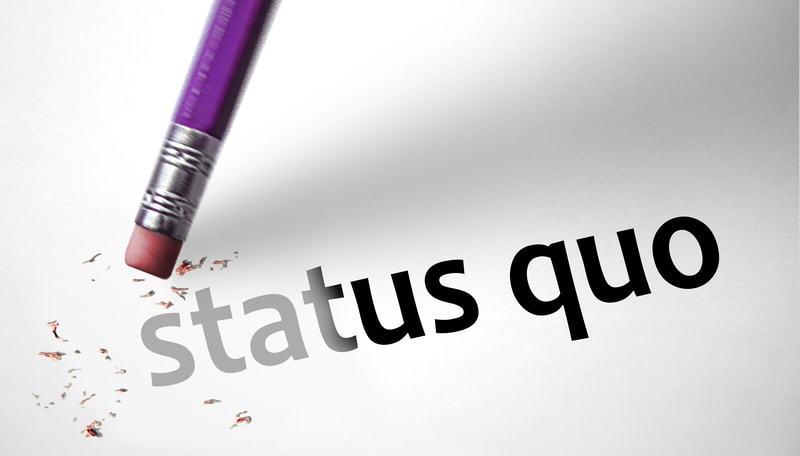
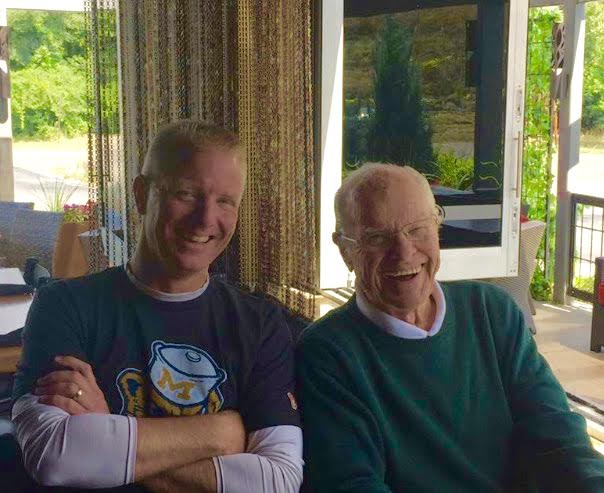
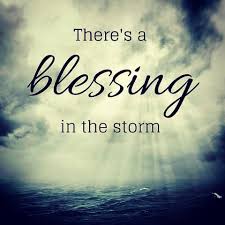


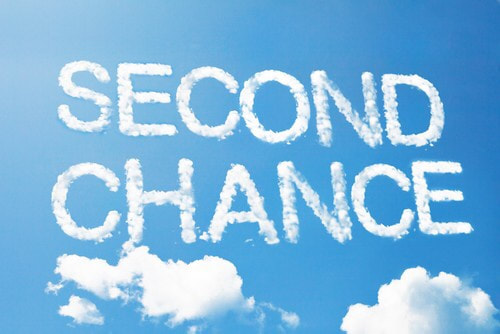
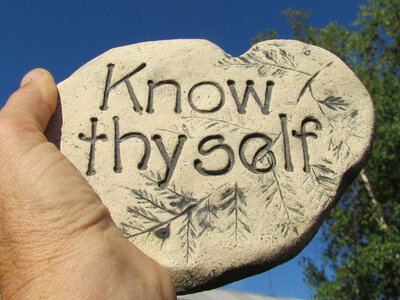
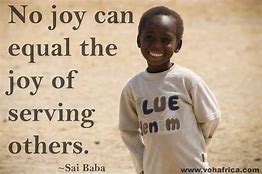
 RSS Feed
RSS Feed
